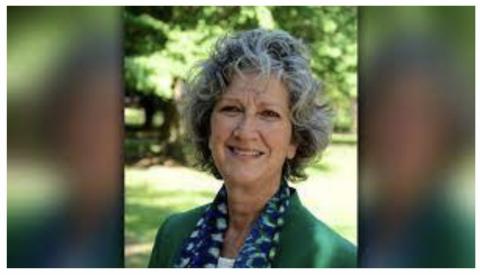Women and the Anti-slavery Movement (Enrichment Lecture: 20)

The Department of English organized the twentieth in its series of virtual Enrichment Lectures on 24 September 2021, with Prof. Sandra H. Petrulionis from Pennsylvania State University, Pennsylvania (USA), on “Women and the Anti-slavery Movement”.
Prof. Petrulionis began the lecture by talking about the foremothers of the movement through the example of Abigail Adams’ and her efforts to repeal systems of puritan America and their mockery, an indication of how extreme the thought of equality was in the early 18th century; the concept of ‘republican motherhood’ led by Judith Sargent Murray where women demanded equality on the ground of maternal duties. The lecture then moved on to the ‘Antebellum Era’, of initial yet limited employment of women. As the interior of North America expanded, most black women were enslaved and even the desire for rights remained limited to white women.
She referred to the history of the publication of anti-slavery newspapers through the example of ‘The Liberator’ by William Llyod Garrison and how he acknowledged the dire need of women’s moral and spiritually superior voice to the movement and pointed out how the then-current regime of oppression violated America’s quest for liberty and justice.
Through the narrative of sisters Angelina and Sarah Grimké who documented the barbaric treatment of the enslaved after witnessing it in their own aristocratic family, she then elicited how women occupying public platforms ignited controversy and staunch criticism from both the genders. The sisters, and through them, all radical anti-slavery intersectional feminists were questioned on their political identity. Ministers and conservative politicians accusing these activists of witchcraft stated that the active involvement in the abolition corrupted a woman’s nature and soul. The ferocity of this tumultuous response was evident through instances like stoning women speaking on a stage or burning down of the Pennsylvania Hall led by women activists. Even after this, women's conventions never restricted the participation of men.
Prof. Petrulionis used the reference of three black women authors, Sojourner Truth, Francis Ellen Harper, and Maria Stewart to define connections between authorization to speak and the generation of this authorization from educators. To visualize the tension of the socio-cultural scenario, she cited the upheaval of Fanny Kemble Butler’s career trajectory and cross-dressing of Ellen Craft as a white aristocrat to pass the border of Georgia. The ruthlessness of the estate owners curtailed the right of voting, signing contracts, owing custody of owning children for both women and all people of colour.
Finally, there was a brief discussion on Prof. Petrulionis’ work in the field and her exploration of Thoreau and Emerson as anti-slavery transcendentalists, recovering women’s activism from the archives and the contribution of the generations of Concord Abolitionists, a mass Female Anti-slavery society. The founder, Mary Merrick Brooks was influential enough to instigate Frederick Douglas and Emerson to speak but was deemed a ‘witch’ by the world and ‘silly’ by her own husband.
After Prof. Petrulionis shared a list for further reading for better insights into the study area, the session was neatly wrapped up with an extensive Q&A which explored the division of transcendentalists on favoured modes of reform, its reflections in the history of struggle in India, the inherent perpetuation of oppressive hierarchy even in movements of protests.

